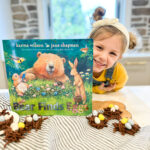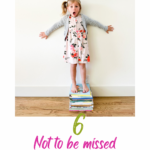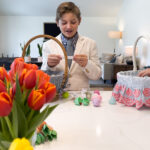Teaching Your Children Values: Self-Reliance and Potential
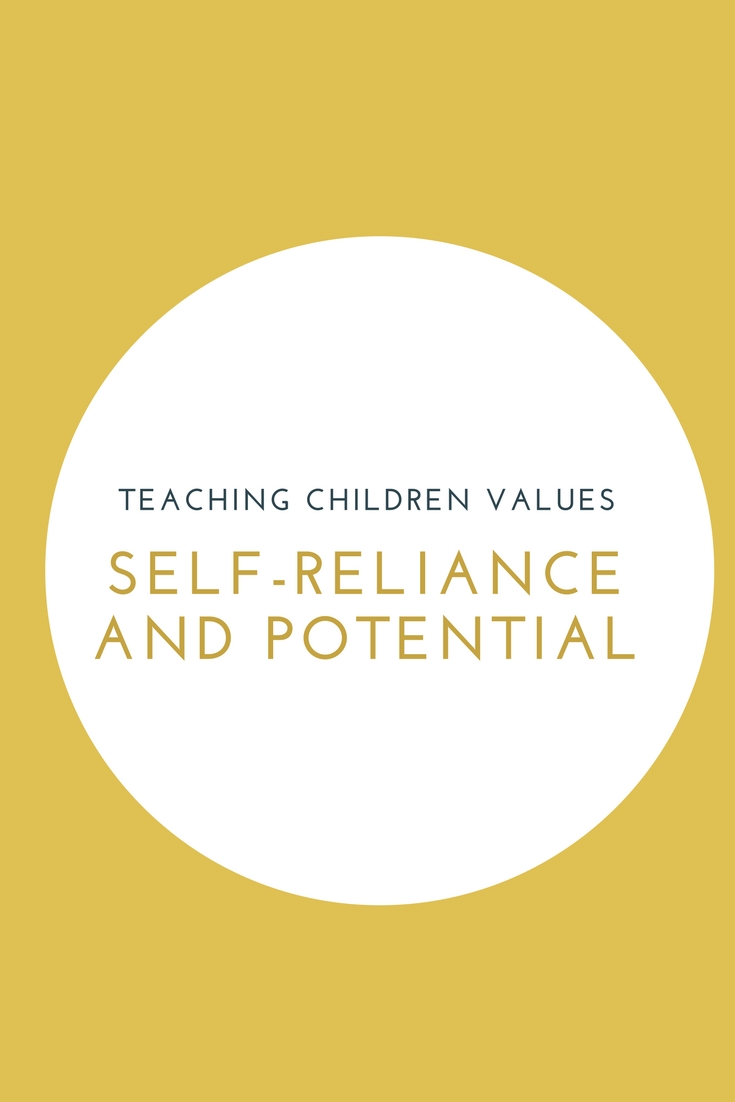
April 4, 2018
Books For Teaching Self-Reliance
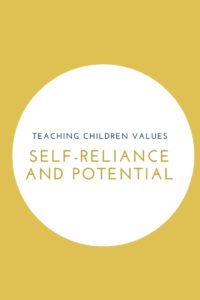
The fourth value that Linda and Richard Eyre focus on in their book, Teaching Your Children Values, is Self-Reliance and Potential. In a nutshell it is: “Individuality. Awareness and development of gifts and uniqueness. Taking responsibility for own actions. Overcoming the tendency to blame other for difficulties. Commitment to personal excellence.”
They go on to say, “There are two separate, but closely related principles involved here. The first is self-reliance of accepting the responsibility for the consequences of one’s own actions, rather than blaming luck or circumstances or someone else. The second is trying to be one’s best self and asking the best from oneself. The conscious pursuit of individuality and potential—and the conscious rejection of avoidable mediocrity. When we take blame and responsibility, we resolve and grow and improve. When we don’t we become bitter, jealous, and defensive. When we take positive pride in what we’re doing with ourselves and our gifts, we feels the growth of individuality and self-esteem. When we don’t we tend to become followers or plodders in the standard ruts of life.”
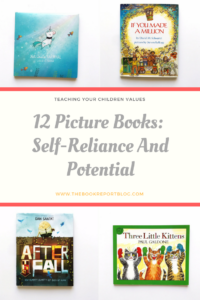
12 books to teach these important principles to your children:
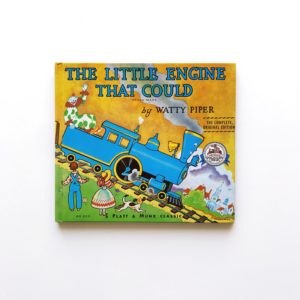
The Little Engine That Could
By: Watty Piper
I am sure most of us read this classic as children, but it’s a classic NOT to be forgotten. The principles of doing our best, going at our pace and believing in what we can become are still just as important for kids today as they were when we were younger. For those that might be new to this book, its about a little train that is taking treats and toys to the other side of the mountain for little boys and girls. Suddenly, the train breaks down and can’t go any further. As trains pass by, the little trains toys and animals try to flag them down to ask for help. Each one puffs on by tooting a reason they can’t help. Finally a little blue engine, smaller then all the rest stops and volunteers to help. This little engine has never crossed the mountain before and is so small he has only ever helped move trains around the train yard, but he is about to show everyone what he can do.
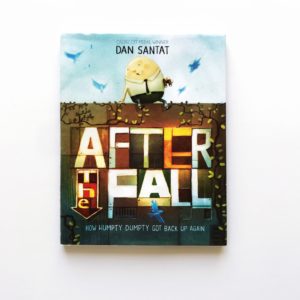
After The Fall
By: Dan Santat
Another great book for teaching kids they never know their full potential unless they get back up after falling down. We all know the classic tale of Humpty Dumpty, but what we don’t know is what he did after the fall. Humpty became paralyzed with worry of falling again and decided not to climb even the smallest of heights. With time he missed the birds and he missed being with them, but he would never climb again because accidents happen. One day, he got an idea to make a paper airplane to reach the heights he couldn’t. But when that airplane soared higher and further than Humpty had anticipated he had a BIG DECISION to make, would he climb and get it or shy away from his full potential?
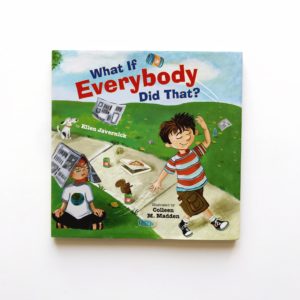
What If Everybody Did That?
By Ellen Javernick
If you drop your candy wrapper on the playground, no big deal, right….? But what if EVERYONE did that? What if everyone broke the rules and talked during story time or feed the animals at the zoo? This book focuses more on people as a whole, but I like to point out how it is each of us individually making good choices that make the world a better place. I like to talk about how we impact not only ourselves with our decisions, but people around us too. It’s also a great book for showing kids that we can’t make them do anything, they have to be self-reliant and make smart/good choices for themselves.
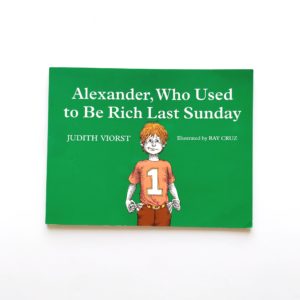
Alexander Who Used To Be Rich Last Sunday
By: Judith Viorst
Last Sunday Alexander’s grandparents gave him a dollar and he was RICH! There were so many things he could do with all that money! He could buy all the gum he wanted, made he could ave enough to buy those walkie-talkies he has been wanting. But somehow the money began to disappear. Placing bets and buying more gum when his old gum started tasting bad, one bad money decision after the nest his money began flying away. Great for showing kids they have to be smart with their own money and self-reliant on how they spend and save. Accepting the responsibility for the consequences of their own actions and not blaming luck or someone else for their problems.
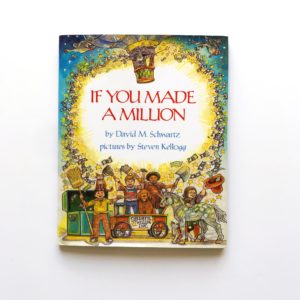
If You Made A Million
By: David M. Schwartz
Is a book that explores money and how it can grow when saved or invested or kept in the bank. Marvelosissimo the Mathematical Magician guides kids through the fascinating world of money as kids do work to earn money from him. The book has actual photos of dollars, pennies, nickels, dimes,and quarters, which is fun to see how they compare when lined up side by side. This text is an informative text, but also fun and playful. It is great for showing kids how money works and how to become self-reliant in finances.
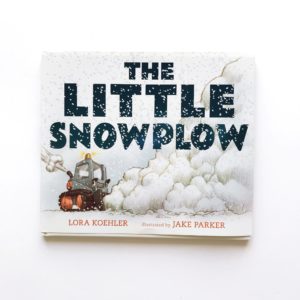
The Little Snowplow
By: Lora Koehler
The Mighty Mountain Road crew trucks all come in one size: BIG! Until, the little snowplow joins the crew. All the other trucks put the little snowplow down and make him feel as if he can’t do his job. That he is too small to amount to anything. That the snow storms will be more than he can handle. However, day after day, the Little snowplow works hard and pushing loads of gravel and pulling blocks of concrete to get ready for the winter snowstorms. And little snowplow is ready to prove them all wrong on the night of the big snowstorm. Great for showing kids that handwork and determination are what determine their performance in life, not size or skill or anything anyone else says about them. We can teach them that they determine their own potential and don’t have to settle for average or “just okay”.
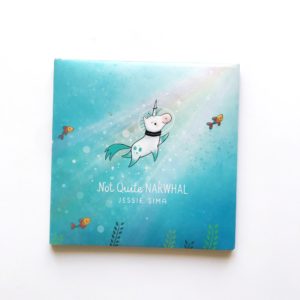
Not Quite A Narwal
By: Jessie Sima
Little Kelp has never worried that he looks different than all the other narwals because they have never treated him any different and like him all the same. However, when a strong current takes him to a far away place he discovers that maybe, just maybe he isn’t a narwal after all. Could Kelp actually be a land narwal? Kelp is a good example of embracing our individuality and what makes us different and being fine with it. We need to teach kids to use these things that make us unique and set them on a path of personal greatness.
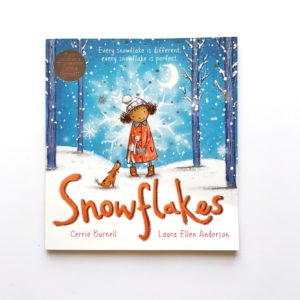
Snowflakes
By: Carrie Burnell
Every snowflake is different, every snowflake is perfect. When young girl moves from the city and everything she knows to live with her grandma in the forest, things just don’t feel the same. Everything is different—she had never fed a hen, had a pet, or worn a big wooly coat. She feels unsure of this new world and her place in it. But when the moon comes out she rushes outside, because the moon is the same. The moon hasn’t changed. Standing in the falling snow, with the moon shining above her head she hears the whispering words, “Every snowflake is different, every snowflake is perfect.” This is great book for teaching kids that uniqueness, individuality and awareness of our unique gifts and abilities are good. They make us who we are and help us reach our potential.
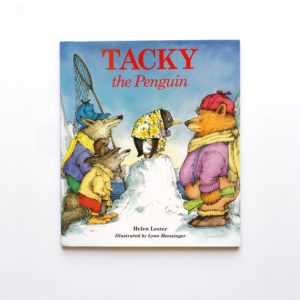
Tacky The Penguin
By: Helen Lester
Tacky the penguin does not fit in with his sleek and graceful companions, and they find his differences completely annoying. However, when his oddness saves the day these same penguins are singing a new tune. This is great book for teaching kids that uniqueness, individuality and awareness of our unique gifts and abilities are good. They make us who we are and help us reach our potential.
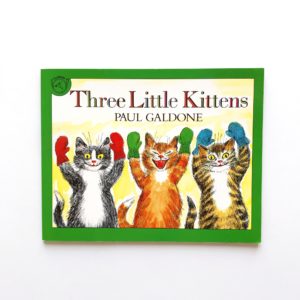
Three Little Kittens
By: Paul Galdone
I am sure we all know this Mother Goose rhyme about three little careless kittens who make mistakes, but seem to correct them on their own. They don’t blame anyone or ask their mother to solve their problems, rather they present the problem and then find a solution. Such a great book for teaching kids to take blame and responsibility and use it to grow and improve and do better.
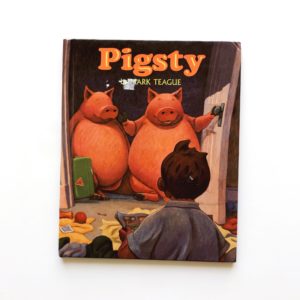
Pigsty
By: Mark Teague
When Wendell lets his bedroom turn into a complete disaster, his mom throws her hands the air and says, “Okay, Wendell, if you want to live in a pigsty, that’s up to you.” Wendell can hardly believe his luck and feels just fine as he sees pigs begin to move in. However, by the end of the week he can’t take it anymore and runs to his mom for help. His mom says,”Sorry, but your room is your responsibility.” Great for showing kids they have to take responsibility for their own actions and not to blame others.
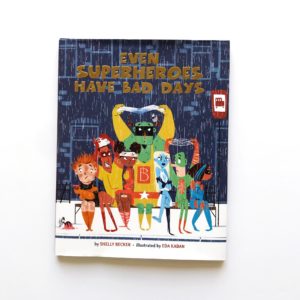
Even Superheroes Have Bad Day
By: Shelly Becker
Superheroes are pretty amazing, but just like us they have bad days too. So, what do superheroes do when they have a bad day? Do they cause a big scene and mass destruction with their super powers? Do they act super-mean? Sure they could use their super powers to kick, hit and punch, but they don’t. They could ignite forest fires with their laser eyes, but they don’t. Superheroes have all sorts of choices when they are sad, mad, or upset–just like we do. So, what DO they DO? This is another great book for showing kids that we have to take responsibility for our own actions and emotions. We can’t blame others or take our problems out on others. We have to be problem solvers and take responsibility by making good choices.
Related Posts
25 Days of Kindness
Reading Incentives
DIY Bookmark Printable
